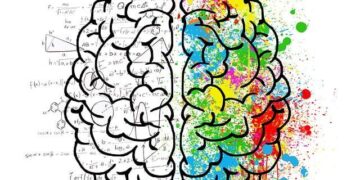Table of Contents
Part 1: Overture – My Journey into the Supplement Chaos
As a health practitioner, I’ve dedicated my career to the intricate science of the human body.
I understood the biochemical pathways, the nutritional requirements, the delicate dance of hormones and neurotransmitters.
I followed the playbook meticulously: a clean diet, consistent exercise, managed sleep.
Yet, for years, a persistent, low-grade static hummed beneath the surface of my life.
It was a stubborn fatigue that clung to me like a damp coat and a brain fog that could roll in without warning, turning sharp thoughts into dull approximations.
I was doing everything “right,” but I didn’t feel right.
Driven by a mix of professional curiosity and personal desperation, I turned to the world of dietary supplements.
It started innocently enough.
A podcast extolled the virtues of a high-potency B-complex for energy.
A magazine article promised that ashwagandha could melt away stress.
Soon, my Amazon cart was a revolving door of hope in a bottle.
My medicine cabinet began to resemble a chaotic, expensive graveyard of half-used supplements.
This is a phenomenon I now recognize as the “snowballing supplement bag,” where over the years, one accumulates a vast collection of pills and powders that made sense at the time but now represent a costly, confusing, and potentially counterproductive mess.1
I was a collector of instruments, but I had no idea how to make Music.
The crescendo of my confusion arrived on a particularly grim Tuesday morning.
Determined to blast through my fatigue, I assembled what I thought was a powerhouse cocktail.
I had my iron supplement to address my suspected low energy, a popular calcium-magnesium-zinc combination for bone health and stress resilience, and a robust B-complex for metabolic support.
I washed it all down with my morning cup of strong black tea.
The result was not the vibrant energy I had envisioned.
Within an hour, a wave of nausea washed over me, accompanied by sharp stomach cramps.
This was followed not by clarity, but by a jittery, unfocused anxiety that left me feeling worse than when I started.
It was a complete system failure.
My body wasn’t energized; it was in revolt.
In that moment of discomfort, I understood the problem with painful clarity.
The failure wasn’t in the individual supplements; iron, B vitamins, and minerals are all fundamentally important.
The failure was in my approach.
I had treated my body like a chemical dumping ground, not a finely tuned biological system.
I had a collection of world-class musicians—a violinist (Iron), a cellist (Magnesium), a trumpeter (B-Vitamins)—but I had thrown them on stage together without a conductor, without a score, and told them to play.
The result was not a symphony; it was a cacophony.
My mistake was a classic one, born of a fundamental misunderstanding of how these molecules interact.
I had taken iron, a mineral that requires an acidic environment for best absorption, at the same time as calcium, which can interfere with its uptake.2
Worse, I had taken it with black tea, whose tannins are known to bind to iron and block its absorption entirely.2
I had also combined several minerals—calcium, magnesium, and zinc—that all compete for the same absorption pathways in the gut, effectively ensuring my body wouldn’t get the full benefit of any of them.2
I wasn’t just wasting money; I was actively working against my own biology.
I realized the supplement industry had taught me to be a consumer, but it had never taught me to be a strategist.
Part 2: The Epiphany – From Cacophony to Symphony
The turning point didn’t come from a medical journal or a nutritional conference.
It came from a conversation with a mentor, a brilliant systems engineer who knew nothing about supplements but everything about complex, dynamic systems.
As I described my frustrating experience, he smiled and said, “You’re not managing a parts list.
You’re conducting an orchestra.”
That single sentence was the epiphany.
It reframed the entire problem.
The goal was never to find the one “best” supplement, just as the goal of a musical piece is not to find the “best” note.
The goal is to become the conductor of your own personal health symphony, intelligently and strategically weaving together different elements to create a harmonious and powerful outcome.
This “Personal Supplement Orchestra” became my new paradigm, a mental model that transformed my approach from chaotic consumption to strategic composition.
It’s a framework I’ve since shared with countless clients, and it’s the foundation of this guide.
Here is how the orchestra is structured:
- The Conductor (You): The most important person in the hall. You are the empowered, knowledgeable individual who makes the strategic decisions. You are not a passive spectator; you are in charge. You decide the tempo, which sections to feature, and when to bring in a powerful soloist. Your authority comes from self-knowledge and a deep understanding of the principles of your craft.
- The Rhythm Section (The Foundation): This is the unwavering, non-negotiable beat that holds the entire performance together. It is composed of diet, sleep, exercise, and stress management. Supplements are, by definition, supplementary.1 They are meant to augment a healthy lifestyle, not replace it. Trying to build a supplement routine on a foundation of poor sleep, a processed-food diet, and chronic stress is like asking a world-class violinist to perform during an earthquake. The music will be lost in the noise. The strongest evidence for health benefits will always lie in these foundational practices.6
- The Score (The Principles): This is the sheet music—the fundamental, non-negotiable rules of biochemistry that govern how the instruments interact. It includes the principles of timing (when a note is played), harmony (which notes sound good together), and dissonance (which notes clash). Ignoring the score leads to the kind of cacophony I experienced. Mastering it is the key to creating a beautiful and effective composition.
- The Soloists (The Supplements): These are the powerful, specialized instruments you bring in to achieve a specific, targeted effect. You don’t have every soloist play all at once. You bring in the soaring violin of L-theanine for focused energy, the calming cello of magnesium for stress, or the deep resonance of probiotics for gut health. The selection of a soloist is a deliberate choice, made by the conductor to serve the overall piece.
This report is your guide to becoming a master conductor.
We will move past the chaos of the supplement aisle and into the ordered, powerful world of the concert hall.
By the end, you will have the knowledge and the tools to quiet the noise, read the score, and conduct your own masterpiece of health and vitality.
Part 3: The Conductor’s Baton – Mastering Your Personal Score
A conductor cannot lead an orchestra without first understanding the unique acoustics of the concert hall and the specific capabilities of their musicians.
In your health symphony, you are both the conductor and the hall.
The first and most critical act of taking control is to know yourself, moving from a state of guessing to a state of knowing.
The First Act: Know Thyself
Personalization is not a luxury; it is the absolute foundation of an intelligent supplement strategy.
A one-size-fits-all recommendation is useless because everyone’s needs are different, dictated by genetics, diet, lifestyle, and underlying health conditions.7
Your first task as a conductor is to gather two types of intelligence: objective data and subjective goals.
Objective Data: The Blood Test Baseline
Supplementing without data is like driving blindfolded.
Before you spend a single dollar on a bottle of pills, invest in a conversation with your healthcare provider and request baseline blood work.
This is the single most powerful step you can take to move from guessing to targeting.
While your doctor will recommend the most appropriate tests for you, some key markers to discuss, especially in the context of common morning goals like energy and mood, include:
- Vitamin D (25-hydroxy Vitamin D): Deficiency in this crucial vitamin is incredibly common, particularly for those who spend a lot of time indoors, and is linked to fatigue and low mood.8
- Vitamin B12: Essential for energy production and nerve function. Vegans and vegetarians are at a particularly high risk for deficiency, as B12 is found almost exclusively in animal products.7
- Full Iron Panel (including Ferritin): Standard iron tests often only measure the iron circulating in your blood. Requesting a ferritin test is crucial, as it measures your body’s stored iron. Many people, especially premenopausal women, can have normal circulating iron but depleted stores (low ferritin), leading to persistent fatigue.8 Supplementing with iron when it’s not needed can be toxic, making this test non-negotiable.5
- Magnesium (RBC Magnesium): Like iron, a standard serum magnesium test may not tell the whole story. An RBC (Red Blood Cell) magnesium test gives a better picture of the body’s actual stores of this vital mineral, which is often depleted by stress.11
This objective data provides your starting map.
It tells you where your true, medically-diagnosed deficiencies lie, which is the only situation where supplementation is unequivocally necessary and effective.1
Subjective Data: Defining Your Goal
Once you have your objective data, you need to define your subjective goal.
What specific outcome are you trying to achieve? What part of your health symphony do you want to enhance? Be precise.
“Feeling better” is too vague.
Are you looking for:
- Sustained, calm energy and mental focus throughout the morning?
- A reduction in feelings of stress and anxiety?
- Improved digestive comfort and regularity?
- Better recovery from morning workouts?
Clearly articulating your primary goal allows you to select the right “soloist” (the specific supplement) from the orchestra pit later on.
The Second Act: The Power of the Pause
Before you can add new instruments, you must first silence the existing noise.
If your medicine cabinet looks anything like mine did—a jumble of bottles accumulated over time—the most powerful action you can take is to conduct a “supplement reset.” This process is designed to address the “snowballing supplement bag” head-on, giving you a clean slate from which to build an intentional, effective routine.1
You cannot tune an orchestra if every instrument is playing at once.
The reset allows you to finally hear what each individual instrument sounds like.
This is more than just a practical tip; it is a profound psychological intervention.
The act of accumulating supplements often stems from a feeling of helplessness, a grasping at solutions offered by marketers.
This leads to a loss of agency.
The supplement reset is a structured process that puts you back in control.
It transforms you from a passive consumer into an active scientist of your own body.
By systematically pausing and reintroducing supplements, you are no longer operating on blind faith; you are generating your own personal, experiential data.
This is the first step in reclaiming your authority as the conductor.
How to Conduct a Supplement Reset:
- Consult & Prioritize: The first step is to sit down with your doctor and your blood test results. Identify any supplements that are medically necessary to treat a diagnosed deficiency (e.g., high-dose iron for anemia, prescribed vitamin D). These supplements should not be paused.1
- The Great Pause: For all other non-essential supplements, stop taking them for a period of two to four weeks. This provides a long enough “washout” period for them to clear from your system.1
- Journal & Observe: During this pause, keep a simple daily log. Rate your energy, mood, focus, sleep quality, and digestive function on a scale of 1 to 10. This creates a new, clean baseline against which you can measure the effects of anything you add back in.1
- Strategic Reintroduction: After the pause, begin reintroducing supplements one at a time. Introduce a single supplement and take it consistently for at least three weeks before making a judgment. Continue your daily journaling. Did your energy score go up? Did your sleep improve? Or did you notice no change at all? Sometimes, you won’t notice the benefit of a supplement until you stop it and then reintroduce it.1 This methodical process allows you to isolate the specific effect of each “soloist,” finally revealing what is truly working and what is just expensive noise.
Part 4: The Principles of Supplement Harmony (The Score)
Every great conductor has an intimate knowledge of music theory.
They understand tempo, harmony, and the intricate rules that govern how instruments sound together.
In supplementation, this “music theory” is biochemistry.
Mastering these core principles is what separates a strategic conductor from a chaotic consumer.
This is your score.
Principle 1: Tempo & Timing – When to Play the Note
The effect of a supplement can be dramatically altered by when and how you take it.
The two most important considerations are solubility and interaction with food.
Water-Soluble vs. Fat-Soluble Vitamins
Vitamins are broadly divided into two categories based on how they dissolve and are stored in the body 3:
- Water-Soluble Vitamins (Vitamin C and all B Vitamins): These dissolve in water and are absorbed quickly. Your body does not store them in any significant amount; any excess is typically flushed out through urine. This means they generally need to be replenished daily.3 Because they don’t require fat for absorption, they can often be taken on an empty stomach with a glass of water.5
- Fat-Soluble Vitamins (Vitamins A, D, E, and K): These vitamins require fat to be absorbed from your gut into your bloodstream. They are stored in your body’s fat tissues and liver.3 Taking them on an empty stomach is largely a waste, as they will pass through your system without being properly absorbed. To be effective, they
must be taken with a meal that contains some healthy fats, like avocado, nuts, seeds, or olive oil.5
Empty Stomach vs. With Food
Beyond solubility, some supplements have specific timing requirements for maximum benefit or to avoid side effects:
- Best on an Empty Stomach (First thing in the morning, at least 30 minutes before food):
- Probiotics: Taking probiotics on an empty stomach helps ensure the beneficial bacteria survive the harsh acidic environment of the stomach and reach the intestines, where they do their work.12
- Iron: Iron is best absorbed in an acidic environment, so an empty stomach is ideal. Food, especially dairy products containing calcium, can significantly hinder its absorption.5
- Collagen Peptides & L-Glutamine: These amino-acid-based supplements are thought to be more efficiently absorbed without competition from other proteins in a meal.12
- Best With Food:
- Multivitamins: Taking a multivitamin with food helps with the absorption of its fat-soluble components and can prevent the stomach upset that some people experience when taking it on an empty stomach.5
- Zinc & Magnesium: These minerals can cause nausea or stomach discomfort in some individuals if taken on an empty stomach. Taking them with a meal buffers this effect.5
- Fat-Soluble Vitamins (A, D, E, K): As mentioned, these are non-negotiable and must be taken with a fatty meal.5
Principle 2: Harmony & Dissonance – Avoiding Clashing Notes
Just as some musical notes create beautiful harmony and others create jarring dissonance, supplements can either work together synergistically or compete with each other, canceling out their benefits.
Competitive Absorption: The Mineral Clash
This is one of the most common and critical errors in supplementation.
Many essential minerals—specifically Calcium, Iron, Zinc, and Magnesium—are absorbed using the same pathways in your small intestine.2 When you take them all at the same time, they are forced to compete for the same transport molecules.
It’s like four people trying to get through a single revolving door at once; it creates a bottleneck, and not everyone gets through.
The result is that you absorb less of each mineral.5 The cardinal rule for the conductor is simple:
Space out high doses of these key minerals by at least 2-4 hours. For example, if you take iron in the morning, save your calcium or magnesium for the afternoon or evening.
Synergistic Pairs: The Duets
Conversely, some nutrients work in beautiful harmony, enhancing each other’s effects.
A smart conductor leverages these duets:
- Iron + Vitamin C: This is the classic duet. Vitamin C dramatically increases the absorption of non-heme iron (the type found in plant-based foods and most supplements).4 This is why taking your iron supplement with a glass of orange juice or alongside a vitamin C capsule is highly recommended.
- Vitamin D + Vitamin K2 + Magnesium: This is a crucial trio for bone and cardiovascular health. Vitamin D helps your body absorb calcium from your diet. Vitamin K2 then helps direct that calcium into your bones and teeth, preventing it from being deposited in your arteries where it can cause calcification. Magnesium is essential for the proper metabolism and function of both Vitamin D and calcium.4 Taking these three together creates a powerful synergistic effect.
Problematic Pairings & Medication Interactions
This is a safety-critical part of the score.
Ignoring these interactions can be ineffective at best and dangerous at worst.
Always discuss your supplement routine with your doctor and pharmacist, but be particularly aware of these common dissonant combinations:
- St. John’s Wort: This herbal supplement, often used for mood, is notoriously interactive. It can speed up the liver’s breakdown of many medications, reducing their effectiveness. This includes antidepressants, birth control pills, heart medications, and blood thinners. It should generally be avoided if you are taking any prescription medication.2
- Ginkgo Biloba & Omega-3 Fish Oil: Both of these supplements have mild blood-thinning effects. While generally safe on their own, combining them, or taking them with prescription blood thinners like warfarin or even daily aspirin, can increase the risk of bruising and bleeding.2
- Vitamin K & Warfarin: Vitamin K plays a direct role in blood clotting. The drug warfarin works by inhibiting Vitamin K’s action. Therefore, taking Vitamin K supplements can directly counteract the medication, reducing its effectiveness and increasing the risk of clots.5
- Minerals & Thyroid Medication: Calcium, magnesium, and iron can all interfere with the absorption of thyroid hormone medication (e.g., levothyroxine). It is critical to take thyroid medication on an empty stomach and wait at least four hours before taking any of these mineral supplements.2
One of the most insidious risks in supplementation is not from consciously combining two single-ingredient bottles, but from the hidden complexity within multi-ingredient formulas.
A multivitamin, a “hair, skin, and nails” blend, a pre-workout powder, and a fortified breakfast cereal can all contain overlapping ingredients.
A person might think they are taking a reasonable dose of zinc in their multivitamin, unaware that their beauty supplement and fortified food are adding to that load, potentially pushing them into an excess that can interfere with copper absorption or cause other issues.4
The diligent conductor must perform a full audit.
This involves reading the entire “Supplement Facts” panel on the back of every product you consume, not just the “hero” ingredient on the front.
Create a master list of your total daily intake for key nutrients like zinc, iron, and fat-soluble vitamins to ensure you are not unintentionally creating a cacophony of overdosing and negative interactions.
To make these principles immediately actionable, the following table summarizes the key timing and interaction rules for common morning supplements.
Table 1: The Morning Supplement Timing & Interaction Chart
| Supplement | Best Time to Take | Take With | Key Interactions & Considerations |
| B-Complex Vitamins | Morning | Water, with or without food | Take at least 2 hours apart from high-dose Vitamin C, which can hinder B12 absorption.5 |
| Vitamin C | Morning, Empty Stomach | Water | Take at least 2 hours apart from Vitamin B12.5 |
| Vitamin D | Morning | Meal with healthy fat | Works synergistically with Vitamin K2 and Magnesium. Essential for calcium absorption.4 |
| Iron | Morning, Empty Stomach | Water or citrus juice (Vitamin C) | AVOID taking with calcium, magnesium, zinc, or tea/coffee. Space at least 4 hours from thyroid medication.2 |
| Magnesium | Evening (for sleep) or Morning (for stress) | With food to avoid GI upset | Competes with Calcium, Iron, and Zinc for absorption; space them out. Essential for Vitamin D metabolism.4 |
| Zinc | Any time | With food to avoid nausea | Competes with Calcium, Iron, and Magnesium for absorption; space them out.4 |
| Probiotics | Morning, Empty Stomach | Water | Take at least 30 minutes before food to maximize survival through stomach acid.12 |
| Collagen / L-Glutamine | Morning, Empty Stomach | Water or other liquid | Best absorbed without competition from other dietary proteins.12 |
| Ashwagandha / Rhodiola | Morning | With or without food | Often taken in the morning to help manage the day’s stress response.9 |
| L-Theanine | Morning | With or without food | Highly synergistic with caffeine for calm, focused energy.9 |
Part 5: The Soloists – An Evidence-Based Guide to Morning Supplements
With your foundational principles in place, it is time to consider the soloists—the specific supplements chosen to achieve your defined goals.
This section is not a shopping list.
It is a catalog of well-researched instruments for you, the conductor, to evaluate.
The decision to bring in a soloist should always be based on your unique needs (identified in Part 3) and a careful review of the evidence.
Category 1: The Energy & Focus Section (The Woodwinds & Brass)
This section is for those seeking to sharpen mental clarity, sustain energy, and improve cognitive performance.
- B-Complex Vitamins: These eight vitamins (B1, B2, B3, B5, B6, B7, B9, B12) are the tireless workhorses of the orchestra’s rhythm section. They are fundamentally involved in the process of converting the food you eat into usable cellular energy (glucose) and are essential cofactors in the synthesis of neurotransmitters that govern mood and brain function.12 For most people eating a varied diet, a severe deficiency is uncommon, but suboptimal levels can contribute to fatigue. Supplementation is most impactful for those with confirmed deficiencies, dietary restrictions (like vegans who need B12), or increased needs due to stress or high physical activity.7
- Iron: If B-vitamins are the engine, iron is the oxygen delivery system. It is a critical component of hemoglobin, the protein in red blood cells that carries oxygen from your lungs to every cell in your body, including your brain.10 An iron deficiency means less oxygen delivery, which directly translates to physical fatigue and mental lethargy.8 However, because excess iron is toxic and can damage organs, you should
only supplement with iron if a deficiency has been confirmed via a blood test showing low ferritin levels.5 When prescribed, it should always be taken with a source of Vitamin C to enhance absorption and kept far away from calcium, tea, and coffee.2 - L-Theanine: This is the elegant woodwind soloist, providing focus without the frantic energy. An amino acid found almost exclusively in green tea, L-theanine has the unique ability to promote a state of “calm alertness”.14 It works by increasing alpha brain waves, which are associated with a state of relaxed wakefulness, and by modulating calming neurotransmitters like GABA and serotonin.17 Its most powerful performance is as a duet with caffeine. A typical dose of 100-200 mg of L-theanine taken with a morning coffee can smooth out the jittery edges of caffeine, reducing anxiety while enhancing focus and attention.9
- Rhodiola Rosea: This is the powerful brass instrument, building resilience against fatigue. Rhodiola rosea is an adaptogenic herb, meaning it helps the body adapt to and resist physical and mental stress.21 Its primary mechanism is believed to be the modulation of the body’s central stress-response system, the hypothalamic-pituitary-adrenal (HPA) axis, helping to balance cortisol output.22 Studies have shown that a standardized extract (like SHR-5) at doses between 288-680 mg per day can significantly reduce symptoms of stress-related fatigue, improve mood, and enhance concentration.23 Interestingly, Rhodiola appears to have a bell-curve response, meaning that doses higher than this range may be less effective, a perfect example of why more is not always better.21
Category 2: The Stress & Mood Section (The Strings)
This section is for those looking to soothe the nervous system, reduce feelings of anxiety, and build emotional resilience.
- Ashwagandha: This is the principal cellist of the stress-reduction section. As a premier adaptogenic herb from Ayurvedic medicine, Withania somnifera has been used for centuries to promote calm and vitality.25 Like Rhodiola, it works by modulating the HPA axis and has been shown in numerous clinical studies to significantly lower levels of the stress hormone cortisol.11 Participants in studies using standardized extracts (such as KSM-66 or Sensoril) at doses of 240-600 mg daily report significant reductions in perceived stress and anxiety compared to placebo.17 It is an excellent morning supplement to help prepare the body and mind for the day’s challenges.
- Magnesium: This is the foundational bass of the string section, the “relaxation mineral.” It is a cofactor in over 300 enzymatic reactions in the body, playing a critical role in everything from energy production to nerve function and muscle contraction/relaxation.10 Magnesium deficiency is widespread, and chronic stress is known to deplete the body’s magnesium stores, which in turn makes the body more reactive to stress, creating a vicious cycle.7 While often taken in the evening to promote restful sleep, a morning dose can be part of a comprehensive stress-management strategy. Different forms have different benefits: Magnesium Citrate can support digestion, Magnesium Glycinate is known for its calming properties, and Magnesium L-Threonate has been studied for its ability to cross the blood-brain barrier and support cognitive health.
Category 3: The Gut & Foundation Section (The Percussion & Bass)
This section focuses on the foundational rhythm of health that starts in the digestive system.
- Probiotics: These are the diverse and dynamic percussion instruments that set the rhythm for gut health. Probiotics are live, beneficial bacteria that help maintain a healthy balance in your gut microbiome, which is crucial for proper digestion, immune function, and even mood.12 When choosing a probiotic, look for formulas with multiple, well-researched strains (like
Lactobacillus and Bifidobacterium species) and a clear CFU (Colony-Forming Unit) count.29 While higher CFU counts (from 1 billion to 50 billion or more) are available, more is not necessarily better; the key is strain diversity and consistency.28 To maximize their effectiveness, they should be taken on an empty stomach in the morning.12 - Prebiotics & Fiber (e.g., Psyllium Husk): If probiotics are the musicians, prebiotics are their food. Prebiotics are specific types of fiber that your body cannot digest but that feed the beneficial bacteria in your gut, helping them to thrive.28 Soluble fibers like psyllium husk not only feed the microbiome but also absorb water to form a gel, which supports digestive regularity and can help with both constipation and diarrhea.30 Most people do not get enough dietary fiber, making a supplement a useful addition. The key is to start with a small dose and increase slowly to allow your digestive system to adapt, minimizing potential side effects like gas and bloating.28
Table 2: Evidence-Based Morning Supplement Guide
| Goal | Supplement | Strength of Evidence | Typical Morning Dose | Key Considerations & Sources |
| Sustained Energy | B-Complex Vitamins | Strong (for deficiency) | Varies by product | Most effective for those with diagnosed deficiencies or restricted diets (e.g., vegans). 7 |
| Sustained Energy | Iron | Strong (for deficiency) | 65 mg (or as prescribed) | MUST confirm deficiency with blood test (ferritin). Take with Vitamin C, away from minerals/tea. 5 |
| Calm Focus | L-Theanine | Moderate | 100–200 mg | Highly synergistic with caffeine. Reduces jitters while enhancing focus. 14 |
| Fatigue Resilience | Rhodiola Rosea | Moderate | 288–680 mg (standardized extract) | Helps body adapt to stress-induced fatigue. Has a bell-curve dose response. 21 |
| Stress Reduction | Ashwagandha | Strong | 240–600 mg (standardized extract) | Clinically shown to lower cortisol and reduce perceived stress and anxiety. 11 |
| Relaxation | Magnesium | Strong | 200–400 mg | Deficiency is common. Stress depletes levels. Glycinate form is excellent for calm. 11 |
| Gut Health | Probiotics | Strong | 1–50 Billion CFU | Take on an empty stomach. Strain diversity is as important as CFU count. 12 |
| Gut Health | Fiber (Psyllium) | Strong | 5–10 g | Start with a low dose and increase slowly to avoid GI discomfort. Drink plenty of water. 28 |
Part 6: Quality Control – Sourcing the Finest Instruments
A conductor can have a perfect score and world-class musicians, but if the instruments themselves are poorly made, out of tune, or fraudulent knock-offs, the performance will be a disaster.
In the world of supplements, ensuring the quality of your instruments is your final, and perhaps most important, responsibility.
The hard truth is that the dietary supplement industry in the United States is largely unregulated by the Food and Drug Administration (FDA).13
Unlike prescription drugs, supplements do not need to be proven safe or effective before they hit the market.13
This lack of oversight creates a “buyer beware” environment where a product might:
- Contain significantly less of the active ingredient than the label claims.32
- Contain none of the active ingredient at all.
- Be contaminated with harmful substances like heavy metals, pesticides, or microbes.34
- Be adulterated with illegal or undeclared substances, such as stimulants or steroids.34
This is not theoretical.
Independent testing has repeatedly found major discrepancies between what is on the label and what is in the bottle across a wide range of products.33
This is why simply reading a scientific study about an ingredient is not enough.
You must also verify the quality of the specific product you intend to buy.
Successfully navigating this landscape requires a two-part skill set that bridges the gap between science and the marketplace.
First, you must act as a researcher, using evidence-based resources to determine if an ingredient (a soloist) is effective and worth adding to your orchestra.
This involves consulting scientific databases like PubMed and unbiased research aggregators like Examine.com to review the clinical evidence for a substance like L-theanine or Rhodiola.15
Second, you must act as a savvy consumer, using practical vetting tools to ensure the specific product you purchase is of high quality and actually contains what it promises.
This is where independent, third-party certification comes in.
These non-profit organizations act as watchdogs for the consumer, testing products to verify their contents and purity.
Looking for their seal on a product label is your shield against the chaos of the unregulated market.
Your Shield: Third-Party Certification
There are several reputable certifiers, but two of the most rigorous and widely recognized in the United States are USP and NSF International.
The USP Verified Mark
The United States Pharmacopeia (USP) is a scientific nonprofit organization that sets standards for the identity, strength, quality, and purity of medicines, food ingredients, and dietary supplements.
Seeing the round, yellow-and-black USP Verified Mark on a label indicates the product has been voluntarily submitted by the manufacturer for testing and has confirmed that it:
- Contains the ingredients listed on the label, in the declared potency and amount.
- Does not contain harmful levels of specified contaminants like heavy metals, microbes, or pesticides.
- Will break down and release into the body within a specified amount of time, ensuring bioavailability.
- Has been made according to FDA Current Good Manufacturing Practices (GMPs) using sanitary and well-controlled procedures.35
Major brands like Nature Made and Kirkland Signature (Costco) have many products that carry the USP Verified mark.40
The NSF Certified for Sport® Mark
NSF International provides a similar verification service, but their “Certified for Sport®” program is considered the gold standard, especially for athletes or anyone concerned about contamination with performance-enhancing drugs.36 The blue, circular NSF Certified for Sport® mark guarantees everything the USP mark does, with one critical addition:
- It has been tested for more than 290 substances banned by major athletic organizations, including stimulants, narcotics, steroids, diuretics, and masking agents.36
This is the only independent third-party certification program recognized by the U.S. Anti-Doping Agency (USADA), MLB, and the NFL.45
While it is essential for competitive athletes, it also provides the highest level of assurance for any consumer that a product is free from a wide range of undeclared and potentially harmful adulterants.
Table 3: Third-Party Certification Demystified
| Feature | USP Verified | NSF Certified for Sport® |
| Verifies Identity, Potency, & Purity? | Yes | Yes |
| Tests for Harmful Contaminants? | Yes | Yes |
| Confirms Proper Disintegration? | Yes | Yes |
| Verifies Good Manufacturing Practices (GMPs)? | Yes | Yes |
| Tests for 290+ Banned Athletic Substances? | No | Yes |
| Recognized by USADA, NFL, MLB? | No | Yes |
Part 7: Coda – Conducting Your Masterpiece
My own journey through the supplement chaos has come full circle.
My mornings are no longer a frantic, hopeful gamble.
The cacophonous cocktail has been replaced by a quiet, deliberate symphony.
My routine is simple, targeted, and, most importantly, it works.
After my morning workout, I take my third-party certified Vitamin D with a small, fat-containing meal.
An hour later, with my morning tea, I have a dose of L-theanine.
That’s it.
It’s not a complex routine, but it is an intelligent one, built on my specific needs (confirmed by blood work) and grounded in the principles of timing and evidence.
The fatigue and brain fog have lifted, replaced by a clear, sustained energy that feels like my own.
Now, it is your turn to step onto the podium.
The conductor’s baton is in your hand.
You are no longer a confused consumer at the mercy of marketing hype.
You are a conductor, equipped with the knowledge and strategy to create your own health masterpiece.
The path forward is clear:
- Know Your Body: Begin with your goals and baseline blood tests. You cannot conduct what you do not know.
- Reset and Re-evaluate: Take control with a supplement pause. Silence the noise so you can hear the music.
- Learn the Score: Master the non-negotiable principles of timing, harmony, and interaction.
- Choose Your Soloists Wisely: Select your supplements based on strong evidence that aligns with your specific, defined goals.
- Demand Quality: Source the finest instruments. Never purchase a supplement that does not bear the seal of a reputable third-party certifier like USP or NSF.
The ultimate goal is not to have the most supplements, but to have the most effective and harmonious strategy.
It is about moving from complexity to clarity, from chaos to composition.
Welcome to your symphony.
Works cited
- The Case for Hitting Pause on All Your Supplements – WebMD, accessed on August 10, 2025, https://www.webmd.com/vitamins-and-supplements/news/20250410/hitting-pause-supplements
- Taking Supplements? Watch Out for These Common Interactions …, accessed on August 10, 2025, https://www.uhhospitals.org/blog/articles/2025/06/taking-supplements-watch-out-for-these-common-interactions
- Is timing everything? Why it matters when you take your supplements, accessed on August 10, 2025, https://www.hollandandbarrett.com/the-health-hub/vitamins-and-supplements/is-timing-everything-why-it-matters-when-you-take-your-supplements/
- Stacking supplements for faster results? Experts warn the wrong combinations can backfire, accessed on August 10, 2025, https://economictimes.indiatimes.com/magazines/panache/stacking-supplements-for-faster-results-experts-warn-the-wrong-combinations-can-backfire/articleshow/123172416.cms
- Best Ways to Take Different Vitamins – WebMD, accessed on August 10, 2025, https://www.webmd.com/vitamins-and-supplements/ss/slideshow-best-ways-to-take-different-vitamins
- Is There Really Any Benefit to Multivitamins? – Johns Hopkins Medicine, accessed on August 10, 2025, https://www.hopkinsmedicine.org/health/wellness-and-prevention/is-there-really-any-benefit-to-multivitamins
- Should You Take Vitamins Daily? – Cleveland Clinic Health Essentials, accessed on August 10, 2025, https://health.clevelandclinic.org/which-vitamins-should-you-take
- The 6 Best Vitamins and Supplements for Energy – GoodRx, accessed on August 10, 2025, https://www.goodrx.com/well-being/supplements-herbs/vitamins-supplements-for-energy-boost
- The most effective vitamins for boosting energy – Medical News Today, accessed on August 10, 2025, https://www.medicalnewstoday.com/articles/326756
- Can Supplements Improve Your Energy? – WebMD, accessed on August 10, 2025, https://www.webmd.com/sleep-disorders/supplements-and-energy-what-to-know
- Top 10 Supplements & Vitamins for Stress | Nature Made®, accessed on August 10, 2025, https://www.naturemade.com/blogs/health-articles/top-supplements-and-vitamins-for-stress
- Supplements you must take only in the morning on an empty stomach, accessed on August 10, 2025, https://timesofindia.indiatimes.com/life-style/health-fitness/health-news/supplements-you-must-take-only-in-the-morning-on-an-empty-stomach/photostory/118658950.cms
- Dietary Supplements: What You Need to Know – Consumer, accessed on August 10, 2025, https://ods.od.nih.gov/factsheets/WYNTK-Consumer/
- L-Theanine: Dosage, Benefits, and Side Effects – Healthline, accessed on August 10, 2025, https://www.healthline.com/health/l-theanine
- Vitamins and Minerals for Energy, Fatigue and Cognition: A …, accessed on August 10, 2025, https://pmc.ncbi.nlm.nih.gov/articles/PMC7019700/
- 11 Top Supplements To Boost Your Energy and Combat Fatigue – Health, accessed on August 10, 2025, https://www.health.com/supplements-for-energy-8774145
- Vitamins for stress – Medical News Today, accessed on August 10, 2025, https://www.medicalnewstoday.com/articles/vitamins-for-stress
- L-Theanine: Benefits, Dosage, and Side Effects | H.V.M.N. Blog – Ketone-IQ®, accessed on August 10, 2025, https://ketone.com/blogs/blog/supplements-l-theanine-benefits-dosage-and-side-effects
- Theanine benefits, dosage, and side effects – Examine.com, accessed on August 10, 2025, https://examine.com/supplements/theanine/
- L-Theanine – Alzheimer’s Drug Discovery Foundation, accessed on August 10, 2025, https://www.alzdiscovery.org/uploads/cognitive_vitality_media/L-Theanine-Cognitive-Vitality-For-Researchers.pdf
- Rhodiola Rosea benefits, dosage, and side effects – Examine.com, accessed on August 10, 2025, https://examine.com/supplements/rhodiola-rosea/
- Rhodiola Rosea: Evidence-Based Health Benefits and Clinical Insights – News-Medical.net, accessed on August 10, 2025, https://www.news-medical.net/health/Rhodiola-Rosea-Evidence-Based-Health-Benefits-and-Clinical-Insights.aspx
- Rhodiola rosea in Subjects with Prolonged or Chronic Fatigue Symptoms: Results of an Open-Label Clinical Trial – Karger Publishers, accessed on August 10, 2025, https://karger.com/cmr/article/24/1/46/67709/Rhodiola-rosea-in-Subjects-with-Prolonged-or
- Rhodiola rosea in Subjects with Prolonged or Chronic Fatigue Symptoms: Results of an Open-Label Clinical Trial – PubMed, accessed on August 10, 2025, https://pubmed.ncbi.nlm.nih.gov/28219059/
- Top Natural Supplements for Depression: A Comprehensive Guide – HealthyHey Nutrition, accessed on August 10, 2025, https://healthyhey.com/blogs/best-supplements-blog/find-right-natural-supplements-anxiety-depression-guide
- 10 Vitamins and Supplements for Anxiety – The Center • A Place of HOPE, accessed on August 10, 2025, https://www.aplaceofhope.com/10-vitamins-and-supplements-for-anxiety/
- 7 Energy Supplements For Tiredness & More – BodyBio, accessed on August 10, 2025, https://bodybio.com/blogs/blog/supplements-for-energy
- 9 Supplements for Optimal Gut Health, accessed on August 10, 2025, https://www.health.com/supplements-for-gut-health-8780568
- 10 best probiotics to help improve gut health – The Independent, accessed on August 10, 2025, https://www.independent.co.uk/extras/indybest/food-drink/best-probiotics-prebiotics-supplements-ibs-bloating-gut-health-tablets-a9544641.html
- Fiber supplements: Safe to take every day? – Mayo Clinic, accessed on August 10, 2025, https://www.mayoclinic.org/healthy-lifestyle/nutrition-and-healthy-eating/expert-answers/fiber-supplements/faq-20058513
- The Supplements Doctors Actually Think You Should Take – Yahoo Lifestyle Canada, accessed on August 10, 2025, https://ca.style.yahoo.com/supplements-doctors-actually-think-154241782.html
- ConsumerLab.com – PMC, accessed on August 10, 2025, https://pmc.ncbi.nlm.nih.gov/articles/PMC521528/
- Supplement quality, purity reports available on-line… | Clinician.com, accessed on August 10, 2025, https://www.clinician.com/articles/54957-supplement-quality-purity-reports-available-on-line
- Too Little, Too Late: Ineffective Regulation of Dietary Supplements in the United States, accessed on August 10, 2025, https://pmc.ncbi.nlm.nih.gov/articles/PMC4330859/
- Dietary Supplement Manufacturing – USP Verified Mark, accessed on August 10, 2025, https://www.usp.org/verification-services/verified-mark
- Dietary Supplement and Vitamin Certification – NSF, accessed on August 10, 2025, https://www.nsf.org/consumer-resources/articles/supplement-vitamin-certification
- ConsumerLab.com: Independent Tests and Reviews of Vitamin, Mineral, and Herbal Supplements, accessed on August 10, 2025, https://www.consumerlab.com/
- Examine: Evidence-based Analysis on Supplements & Nutrition, accessed on August 10, 2025, https://examine.com/
- Dose-response effect of L-theanine on psychomotor speed, sustained attention, and inhibitory control: a double-blind, placebo-controlled, crossover study – PubMed, accessed on August 10, 2025, https://pubmed.ncbi.nlm.nih.gov/36263942/
- USP Verified Products | Quality Supplements, accessed on August 10, 2025, https://www.quality-supplements.org/usp_verified_products?page=1
- USP Verified Products – Quality Supplements, accessed on August 10, 2025, https://www.quality-supplements.org/usp_verified_products
- What is United States Pharmacopeia & What Does USP Verified Mean? – Nature Made, accessed on August 10, 2025, https://www.naturemade.com/pages/what-is-united-states-pharmacopeia
- Reduce Your Supplement Risk with NSF Certified for Sport | USADA, accessed on August 10, 2025, https://www.usada.org/athletes/substances/supplement-connect/reduce-risk-testing-positive-experiencing-adverse-health-effects/
- Certified for Sport® Program – NSF, accessed on August 10, 2025, https://www.nsf.org/consumer-resources/articles/certified-for-sport-program
- NSF Certified for Sport, accessed on August 10, 2025, https://www.nsfsport.com/
- What Our Mark Means – NSF Certified for Sport, accessed on August 10, 2025, https://www.nsfsport.com/our-mark.php






